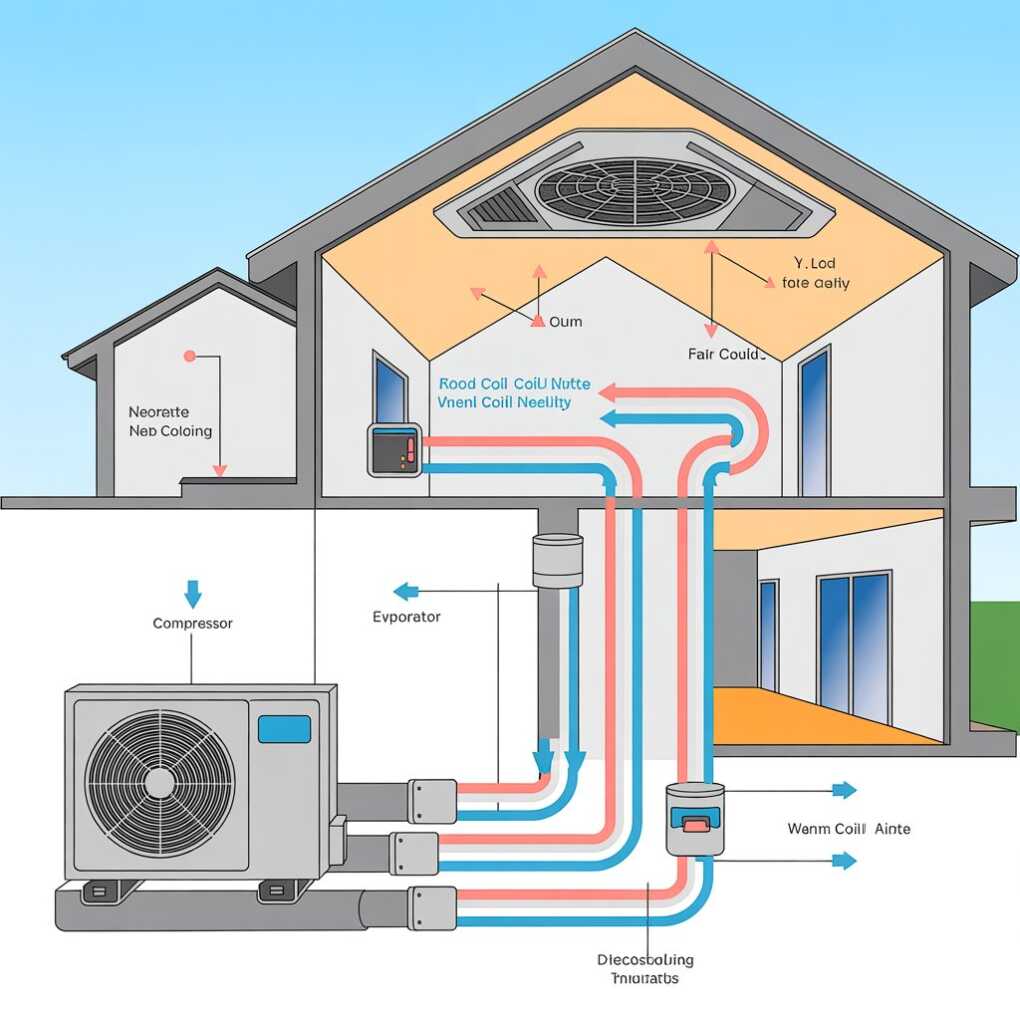In recent years, the need for efficient and effective climate control in homes has become increasingly important. One standout solution that offers both heating and cooling capabilities is the reverse cycle ducted aircon. This system promises to enhance home comfort throughout the year by offering a seamless and integrated approach to maintaining ideal indoor temperatures.

Understanding Reverse Cycle Ducted Aircon
Reverse cycle ducted air conditioning systems are designed to provide heating and cooling from a single unit. Unlike traditional air conditioning units that only focus on one aspect, these systems offer the versatility of reversing the refrigeration cycle. This means that during winter, it can provide efficient heating by extracting heat from outside air and pumping it indoors, and during summer, it reverses the process to keep the indoors cool.
The Technology Behind It
One of the key components of reverse cycle ducted aircon systems is the heat pump. This technology allows the unit to extract heat even from cooler outdoor air. The system is equipped with a compressor, an indoor coil, and an outdoor coil, all working in unison to effectively manage indoor climates. As the demand for eco-friendly systems grows, heat pumps are increasingly seen as a sustainable choice for reducing energy consumption while maximising comfort.
Energy Efficiency and Environmental Impact
Reverse cycle ducted air conditioners are praised for their energy efficiency. By using electricity to move heat instead of generating it, these systems can achieve a high coefficient of performance (COP), meaning they produce more heating or cooling energy output per unit of electricity consumed. This efficiency not only reduces energy bills but also has a lower environmental impact compared to conventional systems.
Cost Considerations
While the initial cost of installing a reverse cycle ducted air conditioning system can be higher than other types, the long-term savings on energy bills can justify the investment. Homeowners can benefit from reduced operating costs, especially in regions with extreme seasonal temperatures where the systems are used extensively throughout the year. Additionally, some regions offer rebates and incentives for installing energy-efficient systems, which can further offset the initial expenditure.
Enhanced Comfort and Convenience
One of the standout benefits of a reverse cycle ducted aircon is the uniform distribution of air throughout the home. Unlike split systems that can create hot and cold spots, ducted systems enable consistent temperature control in all rooms via a series of ducts and vents. Many systems also integrate smart technology, allowing users to set schedules and control the system remotely, adding convenience to comfort.
Installation and Maintenance
Proper installation is crucial to the performance of a reverse cycle ducted air conditioner. It requires professional installation by trained technicians to ensure the system is set up correctly, maximising its potential benefits and minimising inefficiencies. Routine maintenance is also important to ensure longevity and optimal performance, which includes checking for refrigerant leaks, cleaning coils, and ensuring ducts are sealed properly.
Suitability for Different Homes
Reverse cycle ducted air conditioning is suitable for a wide range of properties, from small apartments to large homes. The system can be customised based on the layout and size of a property to ensure efficient performance. Owners of larger homes especially appreciate its ability to maintain consistent temperatures across multiple rooms without the need for multiple units.
The Future of Ducted Air Conditioning
As technology continues to advance, the future of reverse cycle ducted air conditioning looks promising. Innovations such as variable refrigerant flow (VRF) and advanced control systems are likely to enhance the efficiency and convenience of these systems. The integration of renewable energy sources like solar power with air conditioning systems is another trend that could further reduce operational costs and environmental impact.
Conclusion
Overall, reverse cycle ducted air conditioning systems offer numerous benefits that make them a desirable choice for many homeowners. Their capacity to efficiently heat and cool a home, while maintaining low running costs and supporting eco-friendly initiatives, makes them an attractive investment. As demand for sustainable and efficient home climate solutions grows, reverse cycle ducted aircon systems will likely become a staple in modern household climate control.
